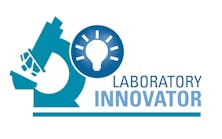Researchers identify two HIV-1 Envelope immunogens capable of eliciting antibodies associated with vaccine protection
Seattle BioMed researchers have identified two HIV-1 Envelope immunogens that elicit broadly neutralizing antibodies when introduced as a vaccine. The study was published online in PLOS One. Follow-up studies will focus on further modifying the Envelope immunogens to increase the potency and effectiveness of a future vaccine.
The HIV-1 Envelope protein immunogens were derived from an elite neutralizer, an individual with an unusually potent antibody response effective against the majority of HIV subtypes. Seattle BioMed researchers identified two Envelope immunogens that elicited cross-reactive binding antibodies to the variable regions 1 and 2 (V1V2) of the envelope protein and induced antibodies capable of neutralizing an array of HIV from different subtypes.
“Previous studies have shown that anti-HIV-1 neutralizing antibodies can effectively block infection with HIV-1 if present prior to infection with the virus,” says Noah Sather, PhD, principal scientist at Seattle BioMed and corresponding author of the study. “In addition, antibodies that target a specific part of the Envelope protein, the V1V2 region, have been shown in clinical trials to be associated with a reduced risk of infection. Thus, the ideal vaccine would introduce immunogens that elicit antibodies both targeted to the V1V2 region of the Envelope protein and capable of providing protection from a wide variety of HIV-1 subtypes.”




